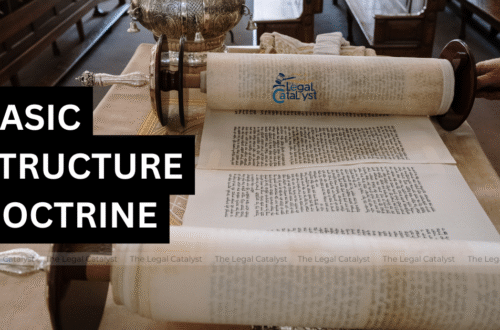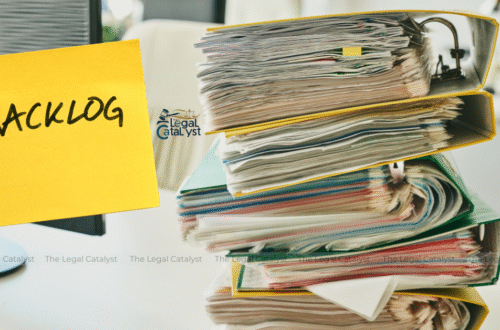Sonam Wangchuk’s Arrest 2025 has sparked nationwide debate on democracy, dissent, and constitutional rights in Ladakh…. The renowned environmentalist, innovator, and education reformer from Ladakh has sparked nationwide debate on democracy, dissent, and citizen rights in this strategically sensitive region. As discussions evolve, Sonam Wangchuk Arrest 2025 continues to influence public opinion and policy direction. Globally recognized for inspiring the film “3 Idiots” and pioneering sustainable innovations like the Ice Stupa Project, Sonam Wangchuk’s detention has sparked widespread debate on democracy, dissent, and citizens’ rights in a strategically sensitive region.
His arrest represents not just the detainment of a single activist but the underlying struggle of a community seeking recognition, protection, and self-determination.
In the wake of the Sonam Wangchuk Arrest 2025, many activists have rallied around the cause, emphasizing the need for greater autonomy and protection of rights within Ladakh.
The Sonam Wangchuk Arrest 2025 has also ignited conversations around environmental protection and the preservation of cultural identity.
Who is Sonam Wangchuk?
Sonam Wangchuk is an engineer, educationist, and climate activist from Ladakh. He founded the Students’ Educational and Cultural Movement of Ladakh (SECMOL), promoting the principle of “learning by doing.”
Over the decades, he has worked to:
- Implement sustainable education reforms in Ladakh.
- Introduce climate adaptation solutions like the Ice Stupa Project to combat water scarcity.
- Preserve Ladakh’s fragile ecosystem and indigenous knowledge.
For his efforts, he received the Ramon Magsaysay Award (2018) for community-driven innovation.
Background of the Protests
Following the abrogation of Article 370 in August 2019, Ladakh became a Union Territory directly administered by the Central Government. While some welcomed this, discontent soon grew due to:
As the timeline of events progresses, the Sonam Wangchuk Arrest 2025 remains a focal point for advocates seeking justice and accountability.
The Sonam Wangchuk Arrest 2025 has mobilized a significant grassroots movement aimed at restoring democratic values in Ladakh.
- Absence of legislative representation.
- Fear of land and job alienation among locals.
- Demand for Sixth Schedule status for constitutional protection of tribal areas.
Wangchuk became a symbolic leader, voicing concerns about ecological damage, cultural erosion, and local autonomy.
Timeline of Events Leading to His Arrest
The Sonam Wangchuk Arrest 2025 followed several protests and fasts led by him demanding safeguards for Ladakh’s environment and rights:
- Feb 2023 – Apr 2024: Wangchuk conducted several peaceful climate fasts, including a 5-day sub-zero fast at Leh demanding constitutional safeguards.
- June 2024: Criticized excessive tourism, military buildup, and ecological harm via public lectures and viral videos.
- August 2024: Organized “People’s March for Ladakh’s Future”, drawing thousands demanding democracy restoration.
- September 2024: Administration denied permission for a sit-in near Leh Gate, citing “law and order” concerns, escalating tensions.
- 1 October 2024: Placed under preventive detention (Section 107/151, CrPC) for “maintaining public order.”
- 4 October 2025: Wangchuk remains detained over a year later, sparking nationwide and international criticism. Petitions are filed in the Jammu & Kashmir High Court challenging the legality of his detention.
The implications of the Sonam Wangchuk Arrest 2025 extend far beyond his individual case, touching on broader issues of governance and civil liberties.
Ground Reports and Reactions
Public Sentiment in Ladakh:
- Silent marches across Leh and Kargil by youth and monks.
- Ladakh Buddhist Association and Kargil Democratic Alliance condemn the arrest as an “attack on Ladakh’s conscience.”
National Reaction:
- Leaders like Rahul Gandhi, Arvind Kejriwal, and P. Chidambaram denounce the detention as suppression of peaceful dissent.
- The government emphasizes, “No one is above the law”, citing regional stability and security.
International Response:
- Environmental organizations like Greenpeace and Extinction Rebellion Global urge the government to release Wangchuk, calling him a “climate warrior silenced.”
Legal Proceedings and Public Outcry
Internationally, the Sonam Wangchuk Arrest 2025 has drawn attention from human rights organizations advocating for political prisoners.
Following his arrest, Wangchuk was transferred to the high-security Jodhpur Central Jail, joining a list of high-profile inmates. His wife, Gitanjali Angmo, filed a habeas corpus petition in the Supreme Court, challenging the legality of his detention and seeking his immediate release. The Supreme Court is scheduled to hear the plea on October 6, 2025. Meanwhile, protests have erupted across various states, with activists and civil society groups demanding justice and highlighting concerns over the suppression of dissent.
Government’s Stance and Regional Implications
The central government maintains that Wangchuk’s arrest was necessary to maintain public order and that the actions taken were in accordance with the law. However, critics argue that the use of stringent laws like the NSA against a prominent public figure raises questions about the state’s commitment to democratic principles and the protection of individual rights.
Legal and Constitutional Dimensions
Preventive Detention and Fundamental Rights:
- Raises questions under Article 19 (Freedom of Speech) and Article 21 (Right to Life & Liberty).
- Critics argue preventive detention without trial violates “procedure established by law” per Maneka Gandhi v. Union of India (1978).
Demand for Sixth Schedule:
- The Sixth Schedule grants special administrative autonomy to tribal regions in northeast India.
- Leh and Kargil groups argue that Ladakh’s demographic vulnerability and environmental sensitivity justify inclusion.
The Larger Symbolism
Wangchuk’s detention is emblematic of a regional struggle for identity, sustainability, and self-determination. It highlights the tension between:
The ongoing legal battles surrounding the Sonam Wangchuk Arrest 2025 continue to emphasize the need for systemic reform within the judicial system.
- Development vs. environmental protection
- Central authority vs. local identity
The ramifications of the Sonam Wangchuk Arrest 2025 are being felt not only in Ladakh but across India, prompting nationwide discourse.
“I am not against development; I am against mindless destruction disguised as progress.” – Sonam Wangchuk
Ultimately, the Sonam Wangchuk Arrest 2025 serves as a crucial reminder of the ongoing struggle for civil liberties and rights.
This statement has become a rallying cry for Ladakh’s youth, who see his imprisonment as a moral injustice and a threat to democratic expression.
The Legal Catalyst’s Opinion
As the Co-founder of The Legal Catalyst and a law student, I believe the Sonam Wangchuk Arrest 2025 raises a far deeper question than just the detention of one individual. It makes us consider the broader implications. I believe Sonam Wangchuk’s raises a far deeper question than just the detention of one individual. It challenges the very foundation of our democratic and constitutional values. If a citizen peacefully raises their voice for their rights, their land, and their identity, can that be branded as a revolt and punished under stringent laws like the NSA?
Is it justified to silence dissent in the name of national security, especially when the Constitution under Articles 19 and 21 guarantees freedom of speech and the right to life with dignity?
At The Legal Catalyst, we believe that true governance thrives not on fear, but on dialogue. The government must disclose the grounds for such actions, ensure transparent judicial review, and uphold democratic accountability — because the essence of law is not just order, but also justice.
Also Read- Wife of Sonam Wangchuk Moves Supreme Court Against His Detention Under NSA
Conclusion: The Road Ahead
As of 4 October 2025, Wangchuk’s arrest remains a defining moment for Ladakh and India’s democratic fabric. The core question extends beyond one individual: it is about balancing state power and citizens’ rights.
The government must engage in transparent dialogue and restore trust, while Wangchuk’s vision for a sustainable, self-reliant Ladakh continues to inspire activists, environmentalists, and citizens across India and the world.
As the situation evolves, the Sonam Wangchuk Arrest 2025 remains a critical topic for both local and global audiences concerned about justice.
Connect with us on Instagram – X – LinkedIn for daily updates, quizzes, and other materials.






